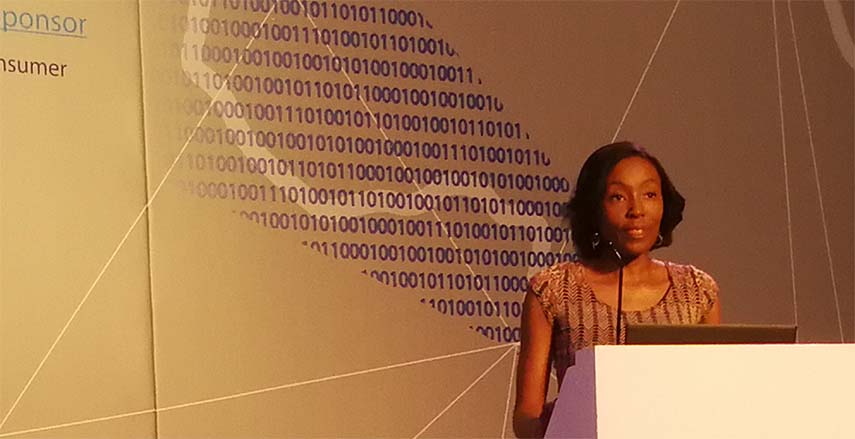Kathy Gibson is at Satnac in Hermanus – Technology is just a part of digital mastery, and arguably the smallest part. The hardest part is in people’s own minds.
Digital success rests on the ability to change mindsets, says Rapelang Rabana, chief digital officer at BCX, addressing delegates at the Southern Africa Telecommunications, Networking and Applications Conference (Satnac) in Hermanus.
“The world needs to find a different way of viewing revenue and profit,” she says. “If you want to deliver profits faster means you have to help the world spin a little faster.
“The world of tomorrow requires you to create value across all stakeholders, and is no longer about single wins.”
Shared value is key to the digital economy. “In this new world order, businesses must visualise a solution that leaves everyone better off.
“So the secret of becoming a digital master is to solve socio-economic problems.”
How can people attain sustainable digital mastery?
Rabana says it starts with innovation, combined with shared value and ruthless execution – the ability to get stuff done, so good thinking doesn’t go to waste.
“Innovation is far less mechanical and intellectual than we realise,” she says. “It starts in a place that is far more organic and subtle, with things you are naturally drawn to or have an authentic connection to. That lets you see deeper into the issue, to unearth insights or significant moments that are the source of competitive advantage.”
This is essential on the innovation journey, Rabana says.
The toughest part of unpacking innovation, she adds, is that no-one else really cares until you achieve success. “If you don’t have capacity for perseverance it won’t materialise.”
Questioning assumptions is the true source of innovation, she says.
“I think the richest source of competitive advantage in business will be with those people who are able to tap into that.”
The concept of shared value is the second step in the equation, and this is key, says Rabana.
Justine Musk has a formula for success: “Shift your focus away from what you want and get deeply, intensely curious about that the world wants and needs.”
This is how you create shared value, Rabana explains.
“Creating shared value works best when you make money with your customers or for your customers; when the journey and value creation is of equal value to both parties.”
Solving a meaningful problem means that people will adopt the solution, and thus create value.
Execution – the final step in digital mastery is the art of getting stuff done
“There is no shortage of awesome ideas. But very few of them are implemented and even fewer make it to scale,” Rabana says.
“But the creation process is far from linear, and much more dynamic.”
Chaos theory tells us that minute variations can produce profound change over time, and this is how innovation needs to be executed.
“So why is it so hard to trust the iterative process?” Rabana asks. “the reality is that our brains are not designed for this process. They are designed to protect us and to take wild adventures.
“Most innovations die between our instincts and our lips.”
Building an innovative solution requires making numerous decision every day for decades, fighting procrastination, self-doubt and fear, she explains.
“The reality is that the right time will never arrive. You will never feel smart enough, wealthy enough, resourced enough. And the smarter you are, the smarter that part of your brain is at coming up with rationalisations for why you shouldn’t do things.”
She recommends a small trick to help overcome this: to count backwards from five to one, which helps to suspend the part of the brain that wants to shut down an idea.
“To be a digital master comes down to those five seconds. Courage comes down to five seconds over years.”

